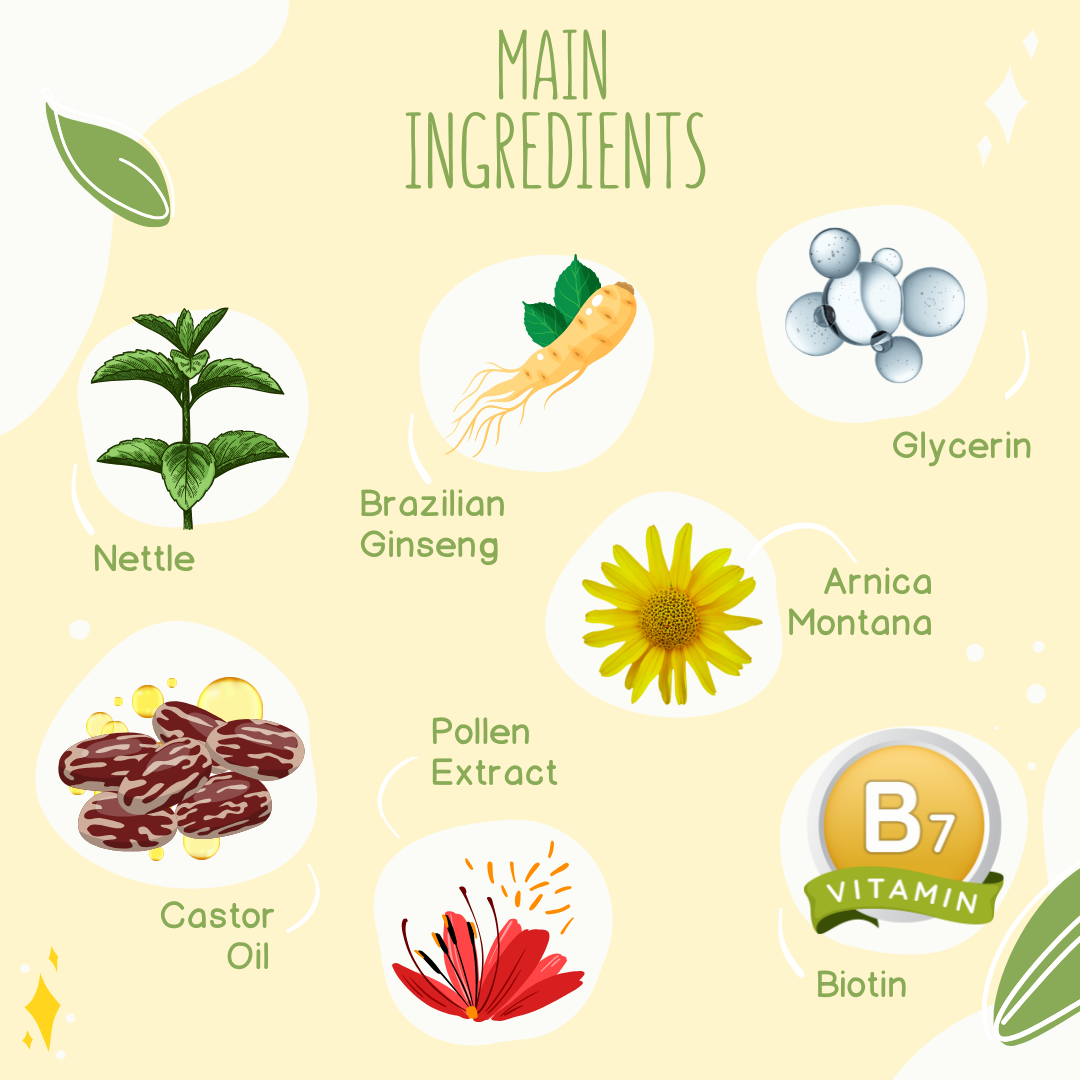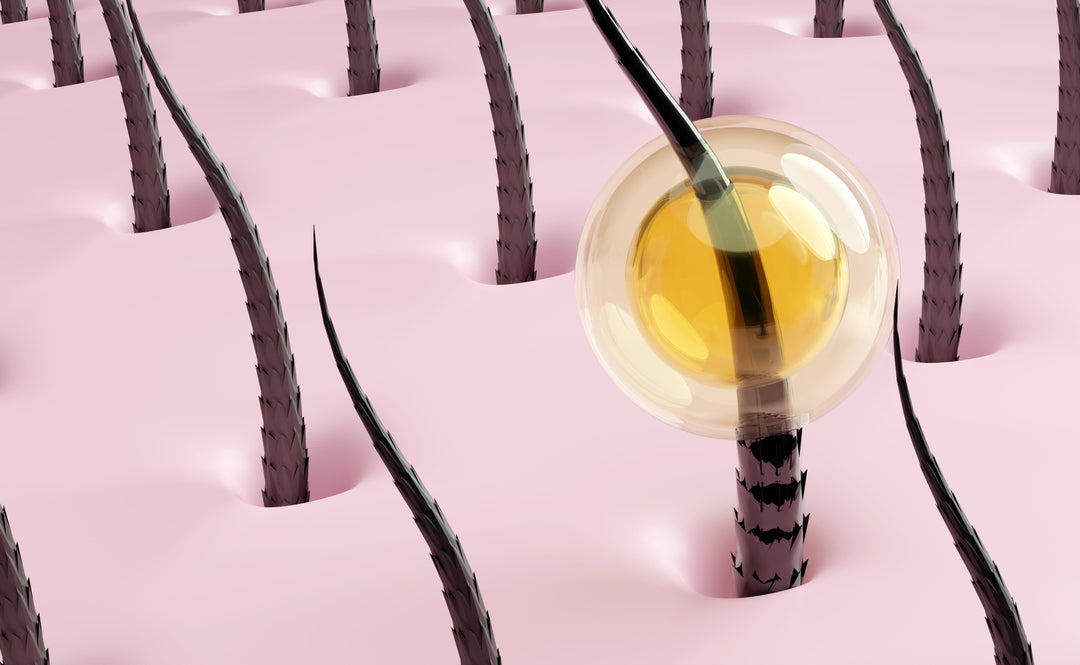Why Isn't Your Hair Growing? Understanding the Common Causes
If you’ve been trying everything under the sun to get longer, luscious hair but feel like your hair just won't grow, you're not alone. Hair growth issues can be frustrating, especially when you're taking steps to nourish and care for your scalp. There are several reasons why your hair might not be growing as much as you'd like, and understanding these reasons can be the first step toward achieving your hair goals. Let’s dive into some common culprits behind hair growth stagnation.
1. Genetics – The Invisible Limitation
One of the biggest factors that determine how long your hair can grow is genetics. Every person has a specific hair growth cycle, which includes growth (anagen), resting (telogen), and shedding (catagen) phases. Some people naturally have a longer anagen phase, which results in longer hair, while others may have a shorter growth cycle. If your hair doesn't seem to grow past a certain length, it might simply be that you have reached your natural terminal length, influenced by genetics.
2. Nutritional Deficiencies
Your diet plays a crucial role in how well your hair grows. Hair is made of a protein called keratin, and like all proteins, your body needs amino acids to build it. Without the right nutrients, your hair may become brittle or stop growing altogether. Important nutrients for hair growth include:
- Protein: Essential for hair structure.
- Biotin and Vitamin B: Helps strengthen hair and promote growth.
- Iron and Zinc: Deficiencies can lead to hair thinning and shedding.
- Omega-3 Fatty Acids: Keeps hair follicles healthy.
If you're not eating a balanced diet rich in these nutrients, it may be slowing down your hair growth.
3. Stress and Hormonal Imbalances
Stress isn't just bad for your mental health—it also takes a toll on your hair. High levels of stress can push hair follicles into the resting phase, leading to increased shedding and less growth. Similarly, hormonal changes due to pregnancy, menopause, thyroid issues, or medical conditions like PCOS can all impact hair growth. These hormonal imbalances can lead to hair thinning or slow growth, often requiring medical attention to manage.
4. Scalp Health Matters
Your scalp is the foundation of hair growth, and any imbalance in scalp health can directly affect how your hair grows. Conditions like dandruff, buildup from styling products, or even fungal infections can block hair follicles and hinder growth. A healthy scalp needs to be clean, hydrated, and free from irritants to support optimal hair growth.
Consider incorporating a biodegradable scalp scrubber to gently exfoliate your scalp, improving circulation and removing any buildup that might be blocking hair follicles. A healthy scalp sets the stage for healthy hair growth.
5. Split Ends and Breakage
It might seem like your hair isn’t growing, but sometimes it’s actually breaking faster than it grows. Split ends, brittleness, and breakage can all make it feel like your hair growth has plateaued. Harsh treatments, frequent use of hot tools, and a lack of proper care (like deep conditioning) can weaken the hair shaft and cause breakage.
To avoid this, make sure to use heat protectants before styling, avoid overwashing, and trim your ends regularly to prevent splits from traveling up the hair shaft.
6. Age and Hair Growth
Age is another important factor that affects hair growth. As we age, our bodies naturally slow down their production of key hormones that contribute to hair growth. This can lead to a longer resting phase, and you might notice thinner hair or slower growth as a result.
7. Hair Care Habits
Your daily hair care routine might also be to blame. Using tight hairstyles like ponytails or braids, brushing wet hair aggressively, and even overusing certain products can damage hair over time. When hair is constantly under stress, it’s less likely to grow healthy and long. Be gentle with your strands, use wide-tooth combs, and opt for less tension in your styles to keep hair happy and growing.
Steps to Encourage Better Hair Growth
Now that you know why your hair might not be growing, it’s time to address those issues:
- Nourish from Within: Maintain a healthy diet rich in vitamins and minerals that promote hair growth.
- Maintain Scalp Health: Use products designed to cleanse and invigorate your scalp. Consider a scalp scrubber and lightweight tonics to boost circulation.
- Be Gentle: Reduce heat styling, and be gentle when brushing and styling your hair to minimize breakage.
- Stay Consistent: Use products like PRAELA's Hair Growth Serum consistently. Products that contain natural extracts, like nettle leaf and arnica, can help promote growth by providing the nutrients your scalp needs.
Hair growth can take time and requires consistent, proper care. By understanding the reasons behind your hair growth issues, you can begin to make informed choices to nurture your hair and scalp, setting the foundation for stronger, longer, and healthier hair.




